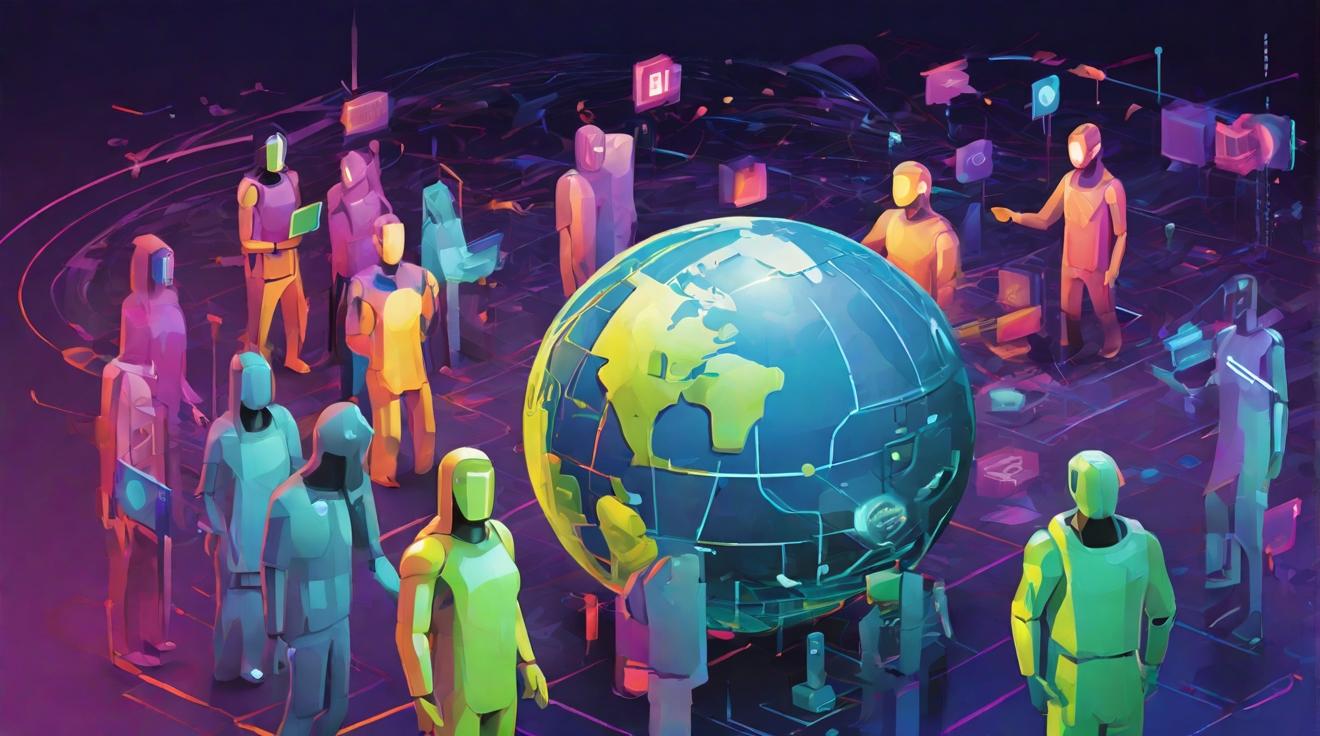Tech Companies Sign Pledge to Address AI Interference in Elections
Twenty leading tech companies, including Microsoft, Google, and Amazon, have pledged to prevent their artificial intelligence (AI) software from interfering in elections worldwide. The voluntary agreement recognizes the potential risks posed by deceptive AI election content and the need for the tech industry to take responsibility. With an estimated 4 billion people expected to vote in elections this year, the accord aims to protect the integrity of electoral processes.
The pledge also acknowledges the slow response of lawmakers to the rapid advancements in generative AI, leaving self-regulation as the primary course of action for the tech industry. "As society embraces the benefits of AI, we have a responsibility to help ensure these tools don't become weaponized in elections," said Brad Smith, Vice Chair and President of Microsoft.
The accord includes a diverse range of companies, from tech giants like Adobe and IBM to startups such as Stability AI and Nota. Although the agreement falls short of an outright ban on AI content in elections, the signatories have committed to eight steps to be taken this year. These steps include the development of tools to differentiate between AI-generated and authentic content and maintaining transparency with the public regarding notable developments.
However, not everyone is convinced of the pledge's effectiveness. Advocacy group Free Press criticized the commitment as an empty promise, emphasizing the industry's failure to fulfill previous commitments made after the 2020 election. They call for more oversight by human reviewers to ensure election integrity.
On the other hand, Rep. Yvette Clarke welcomes the tech accord and encourages Congress to build upon it. Clarke has sponsored legislation to regulate deepfakes and AI-generated content in political ads. She believes this could be a defining moment for Congress to protect the nation and future generations of Americans.
This year is set to be a pivotal one for democracy, with major elections taking place in several of the world's most populous countries, including the United States, India, Russia, and Mexico. The issue of AI-generated content in elections gained attention earlier this year when a fake robocall circulated during New Hampshire's primary, causing concern about the potential misuse of AI-generated audio, video, and images. The Federal Communications Commission responded by outlawing robocalls containing AI-generated voices.
While individual tech companies have taken measures to address the issue, Meta, the parent company of Facebook and Instagram, acknowledged its limitations in labeling AI-generated audio and video. Nick Clegg, President for Global Affairs at Meta, described the pledge as a "meaningful step from industry" but stressed the need for efforts from governments and civil society.
The tech companies collectively announced their accord at the Munich Security Conference, an event attended by world leaders to discuss various global challenges. The commitment represents an important collaborative effort to safeguard democratic processes and combat the potential deceptive impact of AI-generated content on elections.
Analyst comment
Positive news: Twenty tech companies have signed a pledge to prevent AI software from interfering in elections, recognizing the risks posed by deceptive AI election content. The accord aims to ensure that AI tools are not weaponized in elections. The companies will develop new tools and be transparent with the public. However, critics argue that voluntary promises aren’t enough and call for more oversight. Rep. Yvette Clarke welcomes the accord and advocates for Congress to build on it. With elections in several populous countries this year, preventing deception through AI-generated content is crucial. The announcement was made at the Munich Security Conference.













